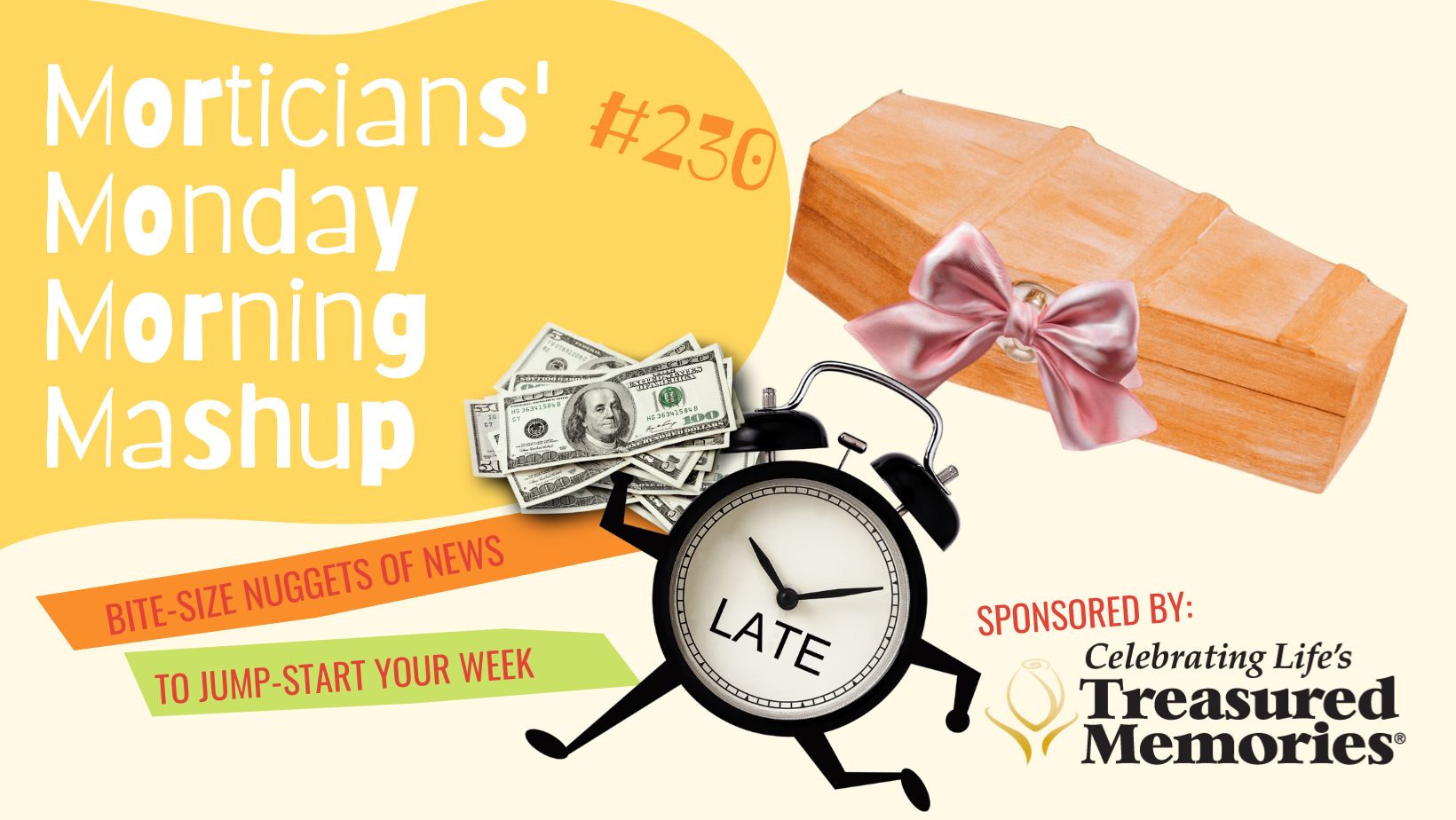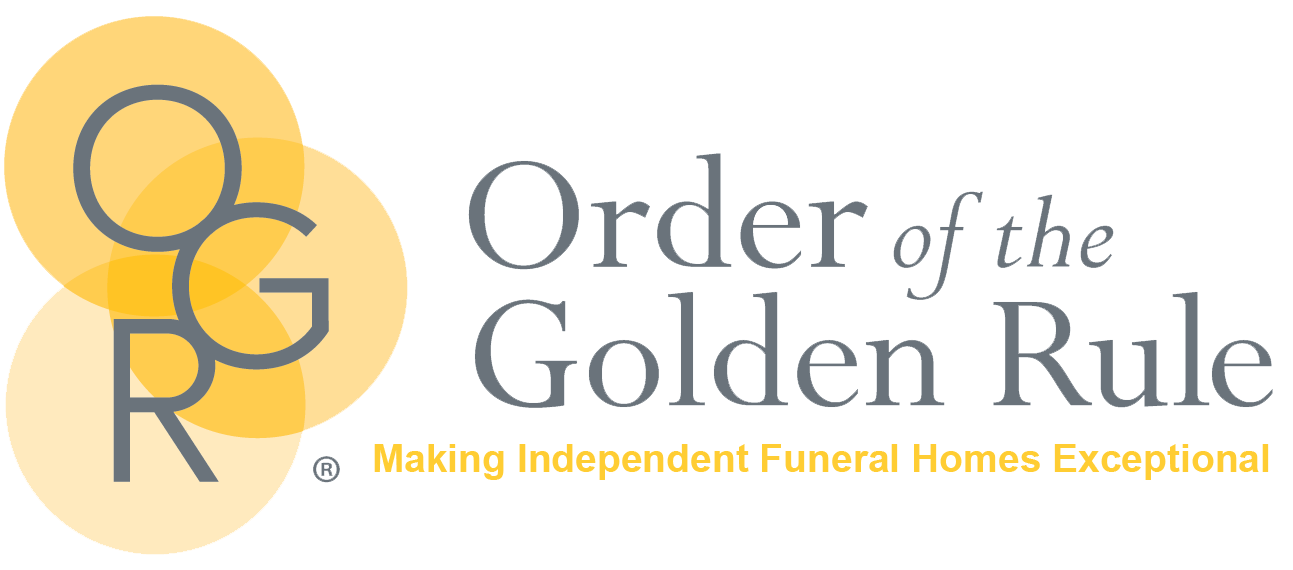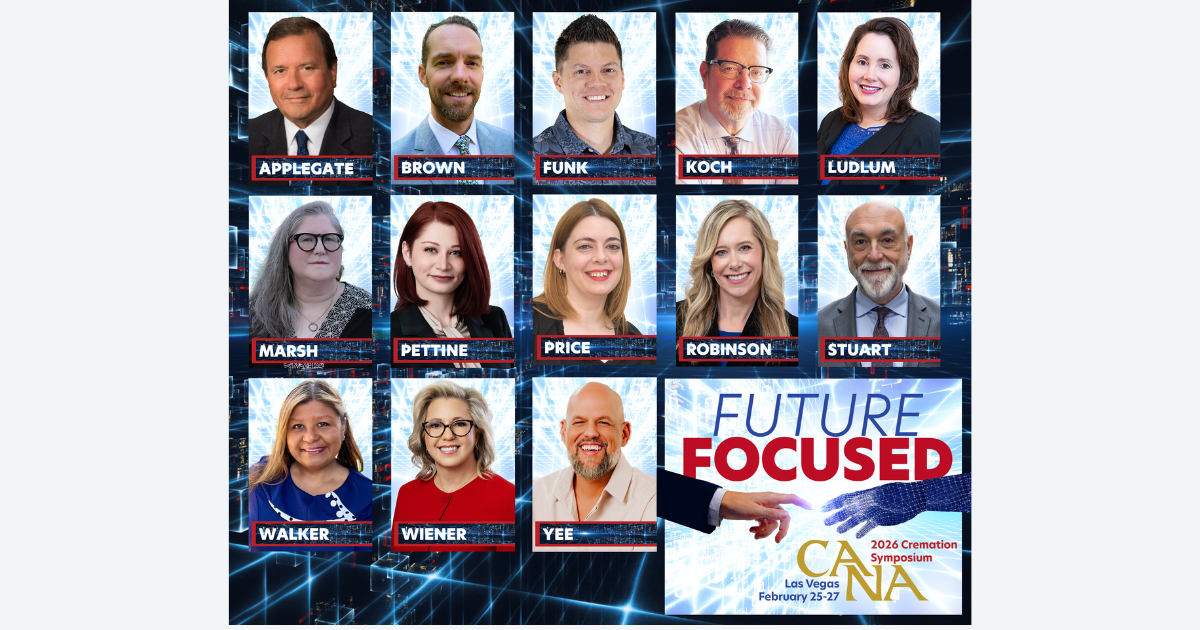The More We Spend, The More We Show Our Love For The Dead
Death, funerals, and funeral professionals will be thrown into the forefront by means of an upcoming TV special on CNBC.
CNBC’s “Death: It’s a Living” Premieres on Thursday, January 31st at 9pm ET/PT and from the many clips promoting the show on Youtube it appears (we could be wrong) that the funeral profession is going to be portrayed as a group of greedy money grabbers…again.
For as much negative press and blow back the show ‘Best Funeral Ever’ got from our profession at least that show gave the viewer a glimpse at some of the possibilites that were available through a personalized funeral service and how much care is provided by the funeral professional and funeral home, it didn’t focus on money or how much a funeral cost.
Here’s a line from the CNBC promo clip:
The more we spend, the more we show our love for the dead.
I personally am tired of watching the same tv specials that talk about the cost of funerals. At least ‘Best Funeral Ever’ got people thinking about the funeral service and not about the money.
Doesn’t this sound like a real win for the funeral profession (sarcasm):
Correspondent Tyler Mathisen talks to a consumer advocate and critic of the funeral care industry who says that too often bereaved families, unaware of their options, are steered towards making unnecessary choices that may not serve their interests.
I can’t wait to watch! Sorry I shouldn’t make assumptions…I guess we’ll have to wait and see.
Here is a Press Release put out by CNBC about the show:
CNBC’s “Death: It’s a Living” Premieres on Thursday, January 31st at 9pm ET/PT
Death isn’t just a certainty, it’s an industry. It’s a business where sympathy and profits go hand in hand.
On Thursday, January 31st at 9PM ET/PT, CNBC presents “Death: It’s a Living,” a one-hour documentary that tells the fascinating story of a business everyone will eventually come into contact with, yet few understand: the $17 billion-a-year “death care” industry. Did you know that casket sales rise shortly after cold and flu season – or that a new breed of entrepreneurs will transport your cremated remains into space? With a fast-paced and engaging approach, CNBC’s Tyler Mathisen profiles the professionals who earn their living bringing people from here… to the hereafter.
It’s a 24/7, fiercely competitive business and no one feels it more than the nearly 30,000 funeral directors around the country. CNBC goes behind-the-scenes of a family-owned funeral home outside Denver and follows a family grappling with a mysterious process and a list of eye-opening prices. Correspondent Tyler Mathisen talks to a consumer advocate and critic of the funeral care industry who says that too often bereaved families, unaware of their options, are steered towards making unnecessary choices that may not serve their interests, like purchasing a casket that can cost several thousand dollars or more.
The biggest threat to the nation’s funeral home operators, who depend on casket sales, is cremation. With religious and social acceptance on the rise, cremation rates exceed 40% in the U.S. and are climbing every year. CNBC goes inside the largest cremation business in Illinois, which operates seven days a week and handles nearly 3,000 cremations a year. The documentary follows this little-understood process, and explains the techniques used to address many families’ biggest fear: getting back the wrong remains. As the popularity of cremation grows, so too does the imagination of aging Baby Boomers who’ve begun to honor themselves and their loved ones in new and different ways; today, ashes can be compressed into a diamond, sunk into an undersea reef, blasted into fireworks, or sent into space atop a rocket.
CNBC follows Frank Mauriello, a man with a most unusual job: he’s a travelling casket salesman. Mauriello works for the Indiana-based Aurora Casket Company, which produces and ships almost 500 caskets a day. Viewers go inside the factory where rolls of steel, bronze and copper can become a $15,000 final resting place in a matter of hours. Like its competitors in this billion-dollar sector, Aurora is threatened by rising cremation rates, so it’s making accommodations: today it offers new colors inspired by automotive trends, and plus-sized coffins with enhanced widths to accommodate increasing obesity rates.
Although “death care” is often thought of as a recession-proof industry, revenues have been tight for most of the 50,000 cemeteries in the U.S. CNBC goes inside the strange business of cemeteries: real estate businesses where land—and new income—inevitably run out, but the pricey promise to maintain every gravesite remains. Many cemeteries are trying to change their image from eerie to entertaining by hosting outdoor movies and renting out reception halls hoping future guests might one day become future customers.
And, CNBC travels to Charlotte, NC, where 6,000 funeral professionals have put their consoling on hold for the industry event of the year—the annual gathering of the National Funeral Directors Association. CNBC takes viewers on a fascinating tour among hundreds of exhibitors showing off the latest and greatest advances in the death care industry, from automated body lifters to biodegradable urns.
Mitch Weitzner is the Senior Executive Producer of “Death: It’s A Living.” Mary Noonan is the Senior Producer and James Segelstein is the Producer. Ray Borelli is the Senior Vice President of Strategic Research, Scheduling and Long Form Programming.



